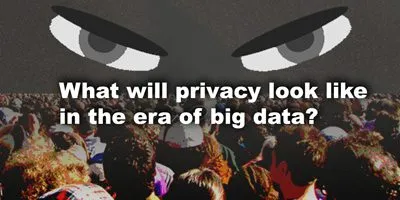6 Tips on Getting People to Give Up Privacy to Get Their Data
Posted on13 Mar 2017
Tagsrewards, security, social media, The Economist, emotional triggers, big data, self-control, narcissists
Comments0
Big data can’t live without data. That means it must find ways to get people to give up privacy so it can... Read More
Reducing Emails Excellent Leadership
Emails are one of the three biggest time wasters in business. Reducing emails though is simple and cheap. It begins and ends... Read More
Leadership, The Secret (Pt 4): Leadership Riddle
Posted on23 Dec 2013
Tagschange, formal organizational power, informal organizational power, leadership, Performance, Personality, problem solving, relationships, rewards, Leadership - The Secret Series, inspiration, power in personality, leadership riddle, analogy collection, Soup Stock – Problem Solving Analogy
Comments0
Leadership has many definitions. It brings to mind the attempts to define such things as love and beauty. Sometimes, when trying to... Read More
Cooperation vs. Self-interest (Pt 6): Incentives & Rats
Posted on26 Dec 2011
Tagscooperation, Cooperation vs Self-interest Series, dog-eat-dog world, extrinsic, Harvard Business Review, health, intrinsic, Lily Tomlin, money, negative, positive, rat race, rats, rewards, self-interest, subconscious, The Unselfish Gene, understanding, Yochai Benkler
Comments0
In Part 4 of this series, I discussed the positivity of intrinsic rewards in the workplace. Let’s now address the negative impact... Read More
Cooperation vs. Self-interest (Pt 4): Intrinsic Rewards
Intrinsic rewards are important aspects of creating a cooperative work culture. However, such rewards are difficult to understand and teach. Moreover, many,... Read More
The Ability to Praise is a Function of Personality
Posted on18 Oct 2010
Tagsapproaches, motivation, mentoring, McKinsey & Company, management, leadership, intuition, intrinsic, extrovert, extrinsic, emotions, compliments, compensation, networking, teach, sensitivity, rewards, praise, Personality
Comments0
One of the major characteristics of intuitive approaches for leadership is the dominance of intrinsic rewards over extrinsic ones. The demarcation between... Read More
What Consumer Psychology Teaches Us About Problem Solving
Posted on27 Sep 2010
TagsMichael I. Norton, decisions, drugs, emotions, expectations, goal setting, Harvard Business Review, How Concepts Affect Consumption, intuition, keeping up with the Joneses, low-cost, Dan Ariely, objective, peer pressure, people, price, problem solving, psychology, rationale, rewards, teach, anticipatory, beverages, brain, business, buying habits, change, cognition, competitive, consumer, cost-benefit
Comments0
We often anticipate and rationalize people’s decisions using a cost-benefit analysis. This perspective frequently leads to erroneous conclusions and restricts problem-solving capabilities.... Read More


